- Home
- Conn Iggulden
Conqueror (2011) c-5 Page 14
Conqueror (2011) c-5 Read online
Page 14
‘When Genghis came to my father’s home, he desired only destruction. The khan cared nothing for wealth and looked to himself for power and titles. Be thankful the world has not seen too many of such men, my son! For the rest, there is always something. You have offered this Hulegu peace and been refused. Offer him gold now and see what he says.’
‘How much should I take to him?’ Rukn said.
His father sighed.
‘Not a single coin. If you return to him with carts of jewels, he will wonder how much we have kept back. He will struggle all the harder to see our fortresses brought down. Even Genghis took tribute from cities, because those around him enjoyed the glitter of fine metals and rubies. Offer … exactly half of everything in the treasury here, so that we may double the offer when he refuses.’
‘You would have me give him everything?’ Rukn asked in amazement.
His father slapped him viciously across the face, making him fall back in pain and shock. Suleiman’s voice was utterly calm as he continued to speak.
‘What comfort will it be to have gold in our pouches if Alamut and Shirat are gone? In all the world no one dares threaten us but these. The Mongols must not come here, my son. No fortress can stand for ever, not even Alamut. I would offer him the clothes from my back if I thought for a single instant that he would leave us in peace. Perhaps he can be bought with gold. We will find out.’
‘And then? If he refuses, what then?’ Rukn said. His cheek was flaming from the blow.
‘If he refuses gold, we will make rubble of Shirat, once a jewel of our possessions. Did you know I was born there, my son? Yet I will give it up if it saves the rest.’ He shook his head in weary cynicism. ‘If the Mongol prince demands still more, I will have no choice but to send our best men to poison his food and wine, to strike down his officers and to murder him as he sleeps. I have tried to avoid such a course, my son. I do not want to enrage this destroyer of towns, this slaughterer of women and children.’
Suleiman clenched his fists for a moment. His father had sent men against the great khan and they had failed. The result was a whirlwind of destruction that had left cities ruined and a swathe of death across the region. There were deserts where Genghis had passed, to that day.
‘If he gives us no other choice, I will take his life. The man who threatens our very existence is no greater than the goat-herds tending my flocks. They can all die.’
Hulegu watched the corpses swinging gently in the breeze. Mongke would be proud of him, he was certain. He had shown no mercy as he drove south and west of Samarkand. The word would go out that there was a new khan and that he should be feared. Hulegu understood his task and he relished earning his older brother’s approval. Only nine young men remained from the town after Hulegu’s warriors slaughtered every other living thing. The river was running red as bodies in the water were drained by the tugging current. Hulegu was pleased at the sight, imagining that the colour would be carried for a hundred miles, bringing fear to all those who saw it. There would be no gates closed to him as he marched, not again.
He had burnt three small cities and a dozen towns as he moved west, killing few, but leaving the inhabitants destitute and hungry, with every loaf and jar of oil or salt taken for his men. He did not know the name of the walled town which had tried to resist, barring their gates with iron and retreating into the cellars while their soldiers held the walls.
It had fallen in just a day. Though he did not have the numbers of cannon that Mongke had given Kublai, there were still enough. In a line of eighty, the polished rock balls smashed open the gates with two blows, but he had not paused to assault the town. Instead, he had ordered the guns to keep firing, cracking the stones to rubble and sending defenders flying in sprays of blood. The tumans had watched indifferently, waiting for his orders.
Only the thought that he should not waste his dwindling store of black powder made Hulegu call the halt. He enjoyed the thunder he could bring with just a wave of his hand. It was intoxicating to say ‘Fall’ and have a city wall hammered to pieces before his eyes. He sent his men in that evening, loping on foot as they rushed to be first to loot the town.
Young women were raped, then tied together in weeping groups, ready for the gambling and bargains that would follow. Children and the elderly were killed as they were found. As with the battered men of the town, they were of no value. Gold and silver items were stripped from each house and piled in the central square to be weighed and assessed. Hulegu had his own forges with him. His habit was to melt the precious metals, skimming off the impurities and alloys as they rose out of the denser gold. Persian chemists directed the work, sending ancient items to feed the flames. They were allowed to keep a tithe of all they collected, one part in a thousand to split between them. Already they were wealthy men and Hulegu had been forced to cut hundreds of trees and wait as the new timber was made into carts to carry the wealth.
Many of the defenders had fallen as the walls collapsed, coughing and choking on dust. Some tried to surrender, and for those Hulegu had only contempt. He stared with pleasure at the swinging bodies. He did not hang them by the neck, to die quickly. A few were hung by the feet, but most were held by ropes under their armpits and gashed across their stomachs to bleed to death. They lasted a long time and their cries could be heard across the hills.
When the town was burning, Hulegu signalled to General Ilugei to cut the bonds holding his prisoners. They were all men who had fought with courage and been battered to the ground. From a town of ten thousand, it was a pitifully small number, but he could at least have the glimmerings of respect for those few. He watched in stern silence as they stood and rubbed their wrists. Two of the nine were sobbing, while the rest stared at him in mute horror and impotent rage. He felt it like good wine in his mouth, making him strong.
He did not speak the local tongue, so he had his words repeated by one of the chemists, a turban-wearing Moslem named Abu-Karim.
‘I will give you horses,’ Hulegu said. ‘You will go ahead of my warriors, my carts and guns. Ride west and south and tell them I am coming. Tell each man you meet that he must open his doors to me, that he must give me his wives and daughters to be mine and his wealth, which will also be mine. He may keep his life. Tell them that if a city, or a town, or a single home bars its doors to me, I will visit destruction on them all, until the earth itself cries out in pain.’
He turned away then, not bothering to wait until the translator was finished. Baghdad was to the south-west and the caliph there had sent more blustering threats and lies. To the north, Hulegu felt the pull of the Assassin strongholds. He grunted in irritation at being caught between the two desires.
CHAPTER FOURTEEN
Kublai could see a multitude around him, from those digging toilet pits, to warriors leading horses and women tending cooking fires for their husbands and sons. He had never known the life of a moving tribe, but something in him found peace in it. Looking into the distance, he wondered again at the veritable nation he had brought south. There must have been half a million souls in the column that rode down the border of Sung lands. He was not even sure of the true number.
He stretched his back with a soft groan as his wife and son prepared his ger for him. Not that little Zhenjin was much use, he noticed. Mongke’s orders had not extended to his family and the ten-year-old still wore a Chin silk tunic and leggings, down to a pair of soft sheepskin boots. His topknot of black hair flicked back and forth with every movement. Kublai tried not to laugh as he saw the boy sneak a handful of steaming meat scraps from the pile that Chabi was working into pouches. She had only looked away for a moment, but the boy had quick hands. Zhenjin had stuffed his cheeks before she turned back. It was bad luck that his mother chose that moment to ask a question, or perhaps not. Chabi adored and spoiled her first-born, but that did not mean her instincts were blunt. As Zhenjin struggled to reply around a mouthful of hot meat, she poked him in the stomach and he sprayed bits of food, giggling.
Kublai smi
led. He could still be surprised at the strength of his emotions when he looked over his family. It wasn’t just that the boy delighted him, but a moment with his family could bring sudden understanding of his own parents. His father had given his life to save a khan, and Kublai finally appreciated the scale of that sacrifice. The man had acted for the nation, knowing he would never see his sons or his wife again. In a strange way, it left a debt to be paid by all of them, as well as a sense that however they lived their lives, they could not equal their father’s final act. Kublai sensed Mongke struggled with the same burden. His older brother was trying to fit an ideal, but he would never know peace looking for the approval of the dead.
At least Mongke had not stinted in men or supplies. With Uriang-Khadai as orlok and Bayar as his senior general, Kublai travelled with two hundred iron cannon and thousands more carts filled with gunpowder and equipment under heavy tarpaulins. He had a staff of ninety-four men and women to handle the moving nation. As he stood there in his reverie, he could see some of them close by. When he had eaten, they would come to him with the details, plaints and problems of so many. He sighed at the thought, but the tasks were not beyond him, not yet. He crashed into slumber each night, yet still rose before dawn and practised with the sword and bow. When the armour had begun to feel light on him, Kublai could even imagine thanking Mongke for the changes he had wrought. The khan knew more about being a warrior than his brother. Unfortunately, it was all he knew.
Kublai felt an itch in his armpit and worked his thumb under the iron scales to scratch the sores there, grunting at the small pleasure. Life was good. He had seen his Chin estates, and in his mind’s eye, green shoots were rising quickly from the black earth. Just sinking a few painted poles into the soft ground had marked a grand new venture in his life. Yao Shu had arranged the lease of thousands of plots, with the rent to be paid from the first crops. If the Chin farmers prospered, two-fifths would be Kublai’s and the money would go to making a city in the north.
It was a dream worth having, something beyond the mass of warriors and horses that filled his sight to the horizons. Though it was little more than a vast square marked out on grassland, his men had already begun calling it Shang-du, the ‘Upper Capital’. Those who did not speak the Chin languages called it Xanadu. He whispered the word aloud.
With a sigh, Chabi wiped a hand across her brow and told Zhenjin to carry the platter inside for the stove. Kublai’s mouth filled with saliva. He was always hungry these days. His wife stood and stretched her own back. He looked over at her and their eyes met, united in their weariness. His mind lost the visions of palaces as his stomach rumbled.
‘Did you get me a skin of wine?’ he said.
‘Of course,’ she replied, ‘though I hope you will not leave it empty again and complain tomorrow about how your head is bursting. There will be no sympathy from me.’
‘I never complain!’ he said, wounded. ‘I am like a stone for keeping silent.’
‘Was that some other man stumbling around the ger this morning, then? Cursing and demanding to know who had stolen his hat? I thought it was you. In fact, I hope it was you, because he was very active last night, whoever he was.’
‘You were dreaming, woman.’
She grinned at him and flicked her long hair back from her face, working quickly with her hands to tie it. He stared deliberately at her breasts as they moved under the cloth and she snorted.
‘There is a fresh bucket of water at the door for you to wash, old goat. Don’t stay out here dreaming, so the food gets cold. I know you will complain anyway, but I will ignore you.’
She went inside and Kublai could hear her berating Zhenjin for stealing some of the pouches. Kublai chuckled to himself. When he had set out from Karakorum, he had not known how long it would take to reach the Sung lands. It was almost two years since Mongke had become khan and Kublai had spent a year of that simply travelling, moving his great host south, day after day. His tumans were with their families and there was no sense of impatience in their ranks. They did not need to stop to live. For them, the journey was as much their lives as reaching the destination. In the evenings, they played with their children, sang, gambled, made love, tended the animals or a thousand other small things that they could do anywhere. For a man who had lived most of his life in Karakorum, it was a strange thing to see.
Kublai had kept his oath to Mongke and not opened a single scroll or book since leaving the city. At first, it had been a terrible hardship and he had slept badly, dreaming of old texts. On the borders of Sung lands there were many signs of that ancient culture. They had already passed through hundreds of small towns and villages and Kublai had not been able to resist snapping up written works when he found them. His growing collection travelled with him like an itch at the back of his mind.
It had been Yao Shu who offered to read them to him in the evenings. Though Kublai was uncomfortable at skirting his oath, he could not deny it was a comfort. His son Zhenjin seemed to enjoy the droning voice and sat up late when he should have been asleep, listening to every word. Kublai’s mind had suffered like a desert in time of drought and the ideas poured in, reviving him.
His body too had toughened in the months of travel. Saddle sores were just a painful memory. Like the experienced warriors, he had developed a sheath of dark yellow callus on his lower spine, about the width of a man’s hand across. He reached behind him to scratch it, frowning at the sweat-slick that stayed on his skin no matter how often he bathed. Mongke could not object to his being clean, at least. Though he wore the scaled armour, Kublai suffered less with rashes and skin rot than his men. In the humid summer, a scent of bad meat overlaid even the odour of wet wool and horses. Kublai still missed the cool Chin robes he had grown to love.
The orlok of his tumans had a ger in sight of Kublai’s, with three women and a host of servants tending his every need. Kublai squinted to see Uriang-Khadai standing over one of them, giving some instruction about the best way to stitch a saddle. The orlok’s back was arrow-straight, as always. Kublai snorted to himself. He had already decided Uriang-Khadai was Mongke’s man, the khan’s eyes on their expedition. The orlok was an experienced officer of the sort who would certainly impress his brother. He had even scarred his cheeks to prevent a beard growing. The keloid ridges proclaimed that he put duty above self, though Kublai saw it as a sort of twisted vanity.
As Kublai watched, Uriang-Khadai felt the scrutiny and turned sharply to face him. Caught staring, Kublai raised his hand as if in greeting, but the orlok pretended he had not seen and turned away to his own ger, his own little world within the camp. Kublai suspected the man saw him as a mere scholar, given authority by his brother for no great merit. When they met each day, he could see Uriang-Khadai’s subtle amusement as Kublai laid out his strategies. There was little liking between them, but it did not truly matter, as long as he continued to obey. Kublai yawned again. He could smell his meal on the breeze and his mouth ached for wine to take the edge off his thoughts. It was the only way to ease his mind, to stop it tearing every idea to pieces and then making new things with the scraps. With a last look around him, he realised he could relax. Some of the tension left his shoulders and back as he ducked into the ger and was immediately ambushed by Zhenjin, who had waited patiently for him.
The tumans were never quite alone as they drifted south. With such a vast and slow assemblage, they could not possibly surprise the Sung nation. There were always scouts watching from the nearest hills. Word had gone ahead. The most recent villages were all abandoned, some of them with odd markings of blood in the road. Kublai wondered if the inhabitants had been slaughtered rather than left to give aid to an enemy. He could believe it. Though he loved the culture, he had no illusions about their brutality or the sort of armies his men would face. The Sung outnumbered him by hundreds to one. They had walled cities, cannon and flame weapons, good steel, crossbows and excellent discipline. As he trotted his horse, he listed their strengths and weaknesses as he
had a thousand times before. Their strengths were intimidating, impossible. The only weaknesses he had been able to think of were that they had few cavalry and that they chose their officers for nobility of birth, or with written examinations in their cities. Compared with men like Uriang-Khadai and Bayar, Kublai hoped the Sung generals would also be considered effete scholars. He could beat scholars.
Out of the corner of his eye, he saw one of his scouts ride up to Uriang-Khadai and report. Kublai kept facing forward, though he felt his heart beat faster in anticipation. Four days before, the Mongol column had crossed the Sung border and begun to move east. Whatever the Sung armies had been doing for the months of his approach, they would have to respond. He had been expecting contact. He had done everything he could with their formations and battle plans, but all of that would change when he met the enemy at last. Kublai smiled as a memory of one book flashed into his mind. He did not have to read it again to know every line. He had memorised the work by Sun Tzu many years before. The irony of a book on the art of war being written by a Chin general was not lost on him. The Sung would know it just as well.
Uriang-Khadai rode slowly over to him, deliberately unhurried, though thousands of interested eyes watched the orlok’s progress. He reached Kublai and dipped his head formally.
‘The enemy are in the field, my lord,’ he said, his voice as clipped and dry as if he discussed the rations. ‘They have taken up a position on the other side of a river, some twenty miles further east and south. My scouts report two hundred thousand infantry and some ten thousand horsemen.’
His voice was deliberately unimpressed, but Kublai felt sweat break out in his armpits, stinging the scabs there. The numbers were terrifying. He did not think Genghis had ever faced so many, except perhaps at the Badger’s Mouth, far to the north.
‘If I may, my lord?’ Uriang-Khadai said into the silence.
Kublai nodded for him to go ahead, suppressing his irritation at the man’s pompous tone.

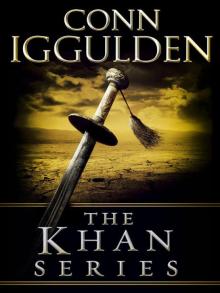 The Khan Series 5-Book Bundle
The Khan Series 5-Book Bundle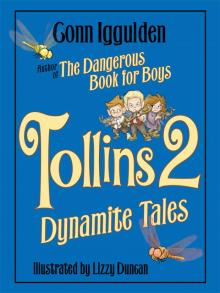 Tollins 2: Dynamite Tales
Tollins 2: Dynamite Tales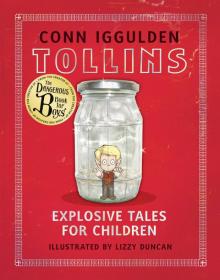 Tollins: Explosive Tales for Children
Tollins: Explosive Tales for Children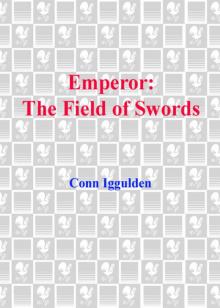 The Field of Swords
The Field of Swords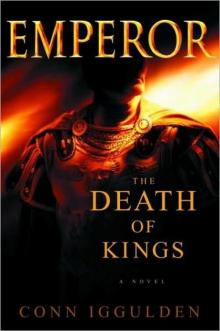 The Death of Kings
The Death of Kings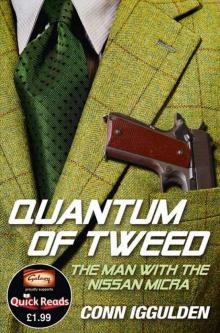 Quantum of Tweed: The Man With the Nissan Micra
Quantum of Tweed: The Man With the Nissan Micra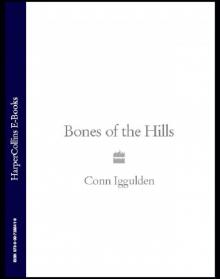 Bones of the Hills
Bones of the Hills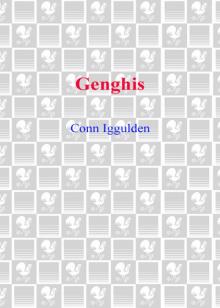 Genghis: Birth of an Empire
Genghis: Birth of an Empire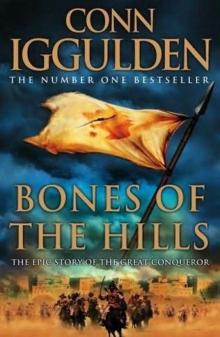 The Gates of Rome
The Gates of Rome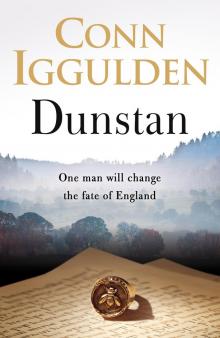 Dunstan
Dunstan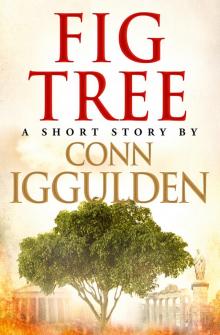 Fig Tree
Fig Tree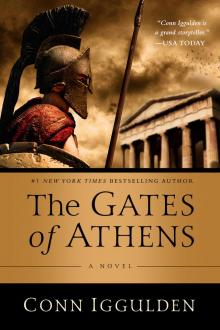 The Gates of Athens
The Gates of Athens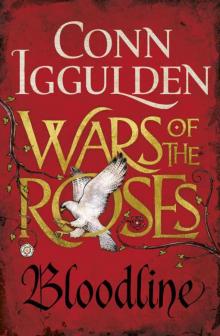 Stormbird
Stormbird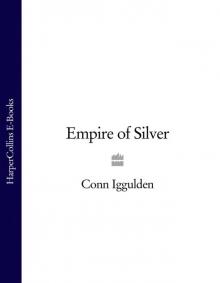 Khan: Empire of Silver
Khan: Empire of Silver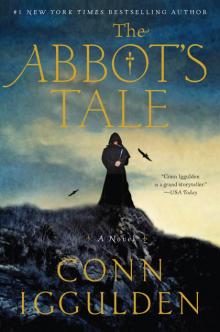 The Abbot's Tale
The Abbot's Tale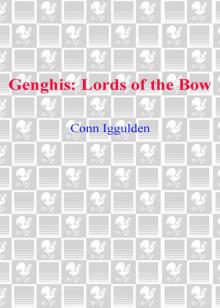 Gengis: Lords of the Bow
Gengis: Lords of the Bow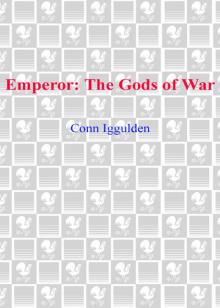 The Gods of War
The Gods of War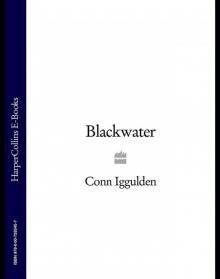 Blackwater
Blackwater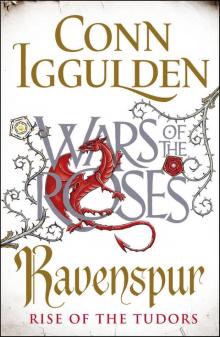 Ravenspur: Rise of the Tudors
Ravenspur: Rise of the Tudors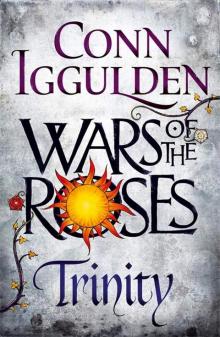 Wars of the Roses: Trinity (War of the Roses Book 2)
Wars of the Roses: Trinity (War of the Roses Book 2)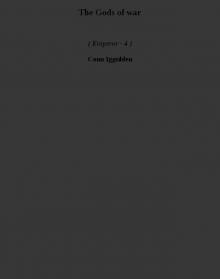 The Gods of war e-4
The Gods of war e-4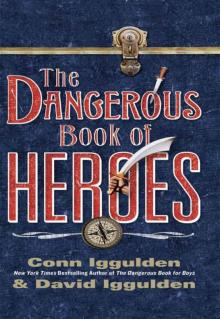 The Dangerous Book of Heroes
The Dangerous Book of Heroes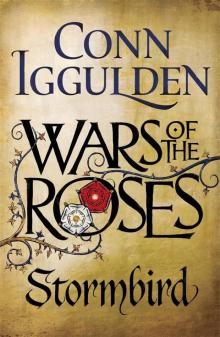 Stormbird wotr-1
Stormbird wotr-1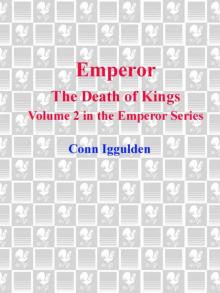 Emperor: The Death of Kings
Emperor: The Death of Kings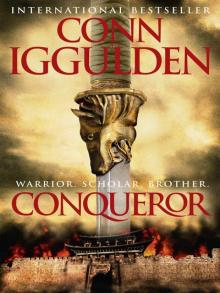 Conqueror (2011) c-5
Conqueror (2011) c-5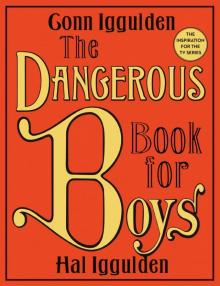 The Dangerous Book for Boys
The Dangerous Book for Boys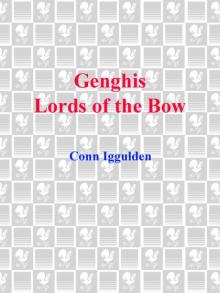 Genghis Lords of the Bow
Genghis Lords of the Bow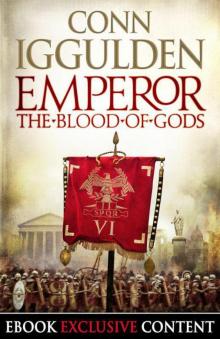 Emperor: The Blood of Gods (Special Edition) (Emperor Series, Book 5)
Emperor: The Blood of Gods (Special Edition) (Emperor Series, Book 5)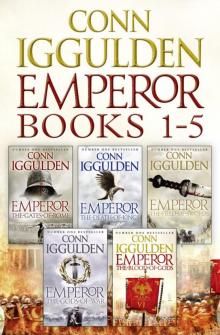 The Emperor Series: Books 1-5
The Emperor Series: Books 1-5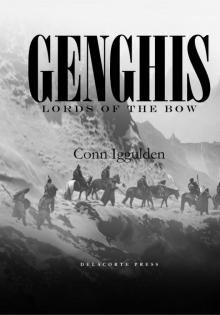 Lords of the Bow c-2
Lords of the Bow c-2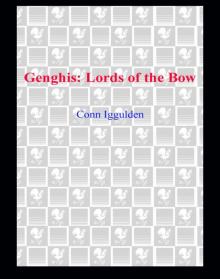 Lords of the Bow
Lords of the Bow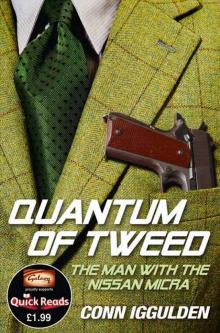 Quantum of Tweed
Quantum of Tweed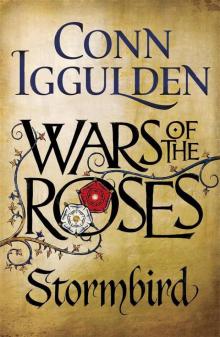 Wars of the Roses 01 - Stormbird
Wars of the Roses 01 - Stormbird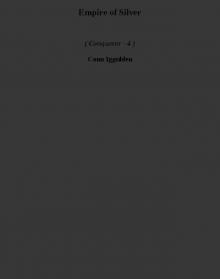 Empire of Silver c-4
Empire of Silver c-4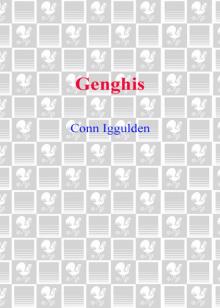 Birth of an Empire
Birth of an Empire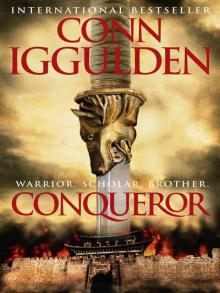 Conqueror (2011)
Conqueror (2011)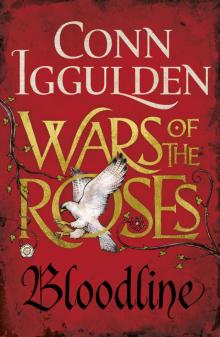 Wars of the Roses: Bloodline: Book 3 (The Wars of the Roses)
Wars of the Roses: Bloodline: Book 3 (The Wars of the Roses)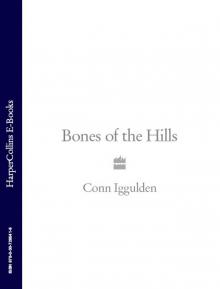 Bones Of the Hills c-3
Bones Of the Hills c-3 Empire of Silver
Empire of Silver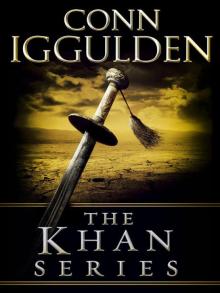 The Khan Series 5-Book Bundle: Genghis: Birth of an Empire, Genghis: Bones of the Hills, Genghis: Lords of the Bow, Khan: Empire of Silver, Conqueror
The Khan Series 5-Book Bundle: Genghis: Birth of an Empire, Genghis: Bones of the Hills, Genghis: Lords of the Bow, Khan: Empire of Silver, Conqueror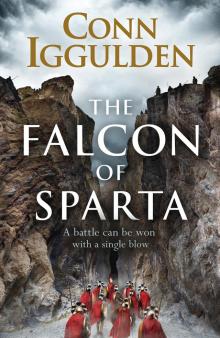 The Falcon of Sparta
The Falcon of Sparta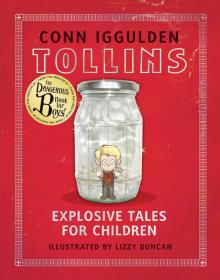 Explosive Tales for Children
Explosive Tales for Children